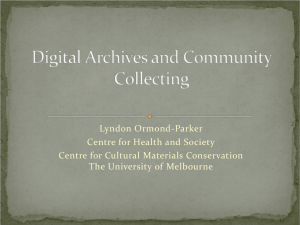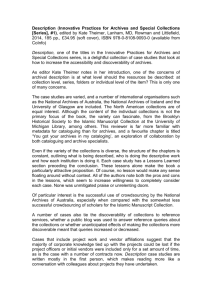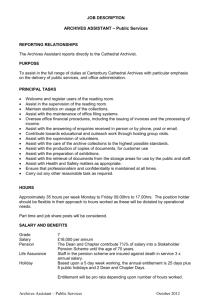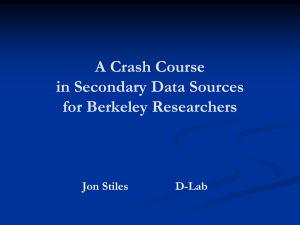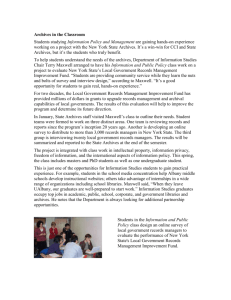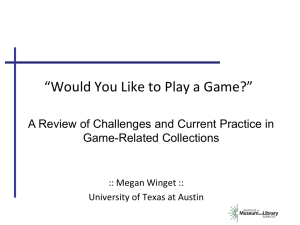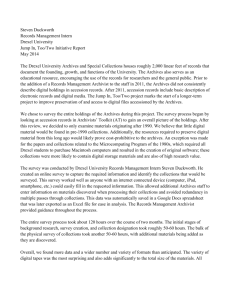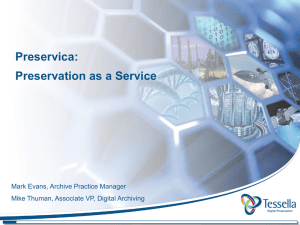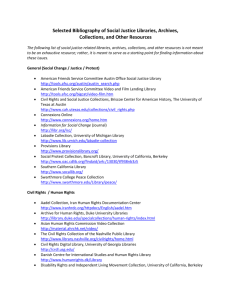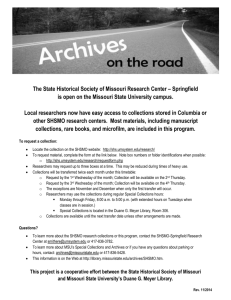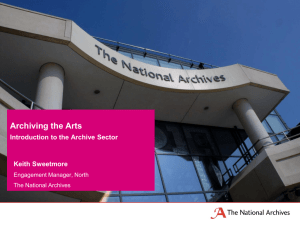Presentation
advertisement
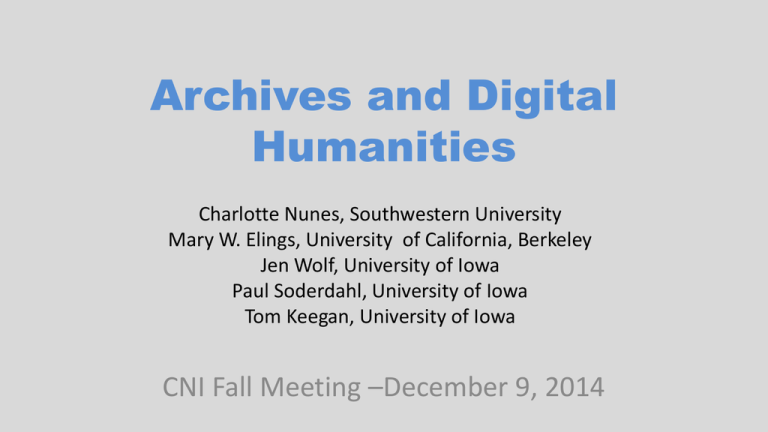
Archives and Digital Humanities Charlotte Nunes, Southwestern University Mary W. Elings, University of California, Berkeley Jen Wolf, University of Iowa Paul Soderdahl, University of Iowa Tom Keegan, University of Iowa CNI Fall Meeting –December 9, 2014 Charlotte Nunes, Postdoctoral Fellow in Digital Scholarship, Southwestern University Student interns preserving primary source materials for the Latina History Project Bilingual invitation to the 1992 opening of the photography exhibition at Southwestern University featuring Central Texas Latinas Getting oriented to Southwestern University Special Collections with Kathryn Stallard, Director of Special Collections and Archives Student interns transcribe and translate a 1984 oral history interview, digitized from the original cassette tape recording Considerations for Digital Humanities collaborations between libraries/archives and academic departments: Designated intermediary is key The intermediary role costs time The intermediary question to student, archivist, and faculty stakeholders: “What could this project do for you?” • SU Department of Research and Digital Scholarship: @SU_RADS • Charlotte Nunes: @ArchivesEducate ArchivesEducate.com #HackFSM Engaging Students in a DH Hackathon April 1-12, 2014 Mary W. Elings Head of Digital Collections The Bancroft Library, UC Berkeley DH and Archives • The three-legged stool – Intellectual Inquiry – Digital Collections – Technology Tools Image by Lina-Marie Köppen: http://www.imrevolting.net/lina-marie-koppen/ What is a hackthon? #HackFSM Goals • Humanities focus - not just technical solution – Humanist as part of team (max 4 members) – Address humanist research question • • • • • Longer coding period – 12 days Engage students - especially women Explore APIs to expose digital archives Develop new interface for digital archives Celebrate the FSM 50th anniversary December 9, 1964 What we provided • • • • • • • Site: http://digitalhumanities.berkeley.edu/fsm-archive-hackathon API to FSM digital archive Mentors and coding support Communications via Piazza Kick off and Closing events Work space on campus Prizes How did it go? • • • • 13 teams, 10 checked in, 8 presented Winner was pretty clear Good crowd for final presentations Even included FSMers – also potential donors http://bancroft.berkeley.edu/FSM/ http://hackfsm.lib.berkeley.edu/ Post Hack • The Good – Student feedback – Publicity was great – Goals met and them some • The Bad – Prizes… • The Ugly – Maintaining winning sites Student Engagement (Faculty and Staff, too) Collaborative Partners The Whitepaper #HackFSM: Bootstrapping a Library Hackathon in Eight Short Weeks bit.ly/1oH9NFb
